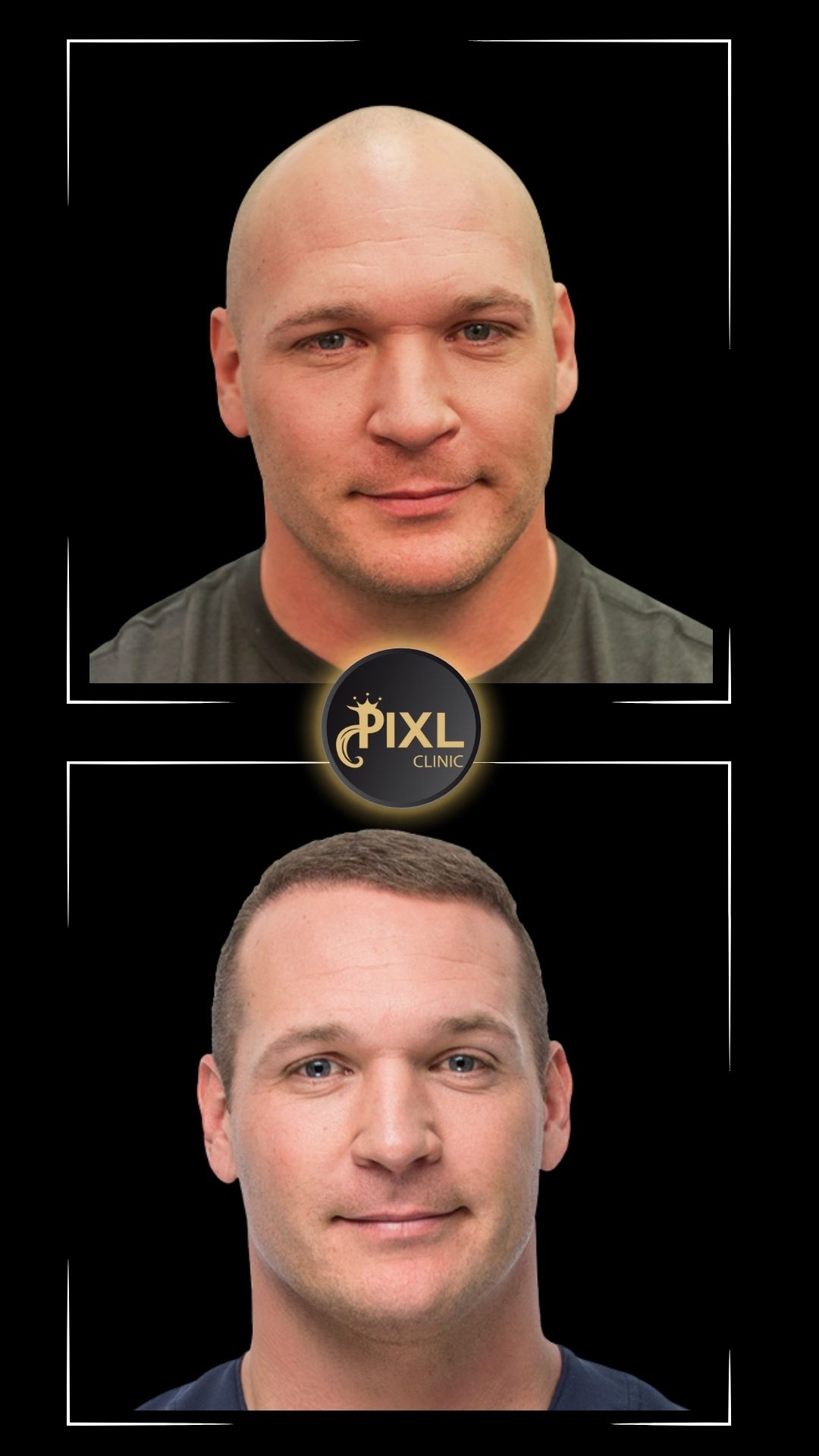Does Hair Transplant Cause Erectile Dysfunction? Debunking the Myths
Hair transplants have become a popular and effective solution for individuals experiencing hair loss. With advancements in techniques like Follicular Unit Extraction (FUE) and Follicular Unit Transplantation (FUT), hair restoration can deliver natural, long-lasting results. However, there are misconceptions surrounding the procedure, with some questioning whether it could lead to erectile dysfunction (ED).
The Myths About Hair Transplants and Erectile Dysfunction
The idea that a hair transplant could cause erectile dysfunction stems from general concerns about surgical procedures and their potential side effects. This misconception is often fueled by confusion between the side effects of certain hair loss medications and the procedure itself.
Key Misunderstandings:
Hair Transplant vs. Medications:
- The hair transplant procedure is entirely different from medications like finasteride (Propecia), which is commonly used to treat hair loss. Finasteride has been associated with rare cases of sexual side effects, including decreased libido and erectile dysfunction.
- A hair transplant, however, does not involve hormonal changes and has no direct impact on sexual function.
General Surgical Anxiety:
- Some individuals may experience stress or anxiety about undergoing a surgical procedure, which can temporarily affect libido or performance. However, this is psychological and not a direct result of the transplant itself.

How Hair Transplants Work
A hair transplant is a surgical procedure that involves moving hair follicles from a donor area (usually the back or sides of the scalp) to areas experiencing hair loss. The two main techniques are:
- FUE (Follicular Unit Extraction): Individual hair follicles are extracted and transplanted.
- FUT (Follicular Unit Transplantation): A strip of scalp is removed to harvest hair follicles, which are then transplanted.
Key Points About the Procedure:
- It is performed under local anesthesia.
- It is minimally invasive, with a short recovery period.
- The process focuses exclusively on the scalp and does not involve the hormonal systems related to sexual function.
The Role of Finasteride and Sexual Side Effects
What Is Finasteride?
Finasteride is an oral medication often prescribed to slow hair loss and stimulate regrowth. It works by inhibiting 5-alpha reductase, an enzyme that converts testosterone into dihydrotestosterone (DHT), a hormone linked to hair loss.
Potential Side Effects of Finasteride:
While effective for many, finasteride has been associated with rare side effects, including:
- Decreased libido.
- Erectile dysfunction.
- Decreased semen volume.
These side effects are believed to occur in a small percentage of users (around 1–2%) and are often reversible upon discontinuation of the medication.
Does a Hair Transplant Directly Cause Erectile Dysfunction?
Scientific Evidence
No scientific evidence links hair transplant surgery to erectile dysfunction. The procedure:
- Does not interfere with hormonal systems.
- Does not affect testosterone or DHT levels.
- Is localized to the scalp and unrelated to sexual health.
Common Side Effects of a Hair Transplant:
The side effects of a hair transplant are typically mild and limited to the scalp, including:
- Swelling or redness.
- Temporary numbness or itching.
- Scabbing around the transplanted follicles.
Why the Confusion Exists
The misconception likely arises from:
- Association with Finasteride: Many individuals undergoing hair transplants also use finasteride to maintain their results, leading to confusion between the procedure and the medication.
- Stress or Anxiety: Emotional stress surrounding surgery or personal concerns about hair loss can temporarily impact sexual function, but this is psychological rather than physical.
Steps to Ensure Sexual Health During Hair Restoration
Understand the Difference:
- A hair transplant is a surgical procedure with no direct link to sexual dysfunction.
- If you’re concerned about medications like finasteride, discuss alternatives with your doctor.
Choose a Reputable Clinic:
- Work with experienced surgeons who can provide accurate information and high-quality care.
Manage Stress:
- If anxiety about the procedure affects your well-being, consider relaxation techniques or counseling.
Consult a Specialist:
- If you’re experiencing sexual side effects, consult a medical professional to rule out other causes.
A hair transplant is a safe and effective procedure for restoring hair and confidence. There is no evidence to suggest that it causes erectile dysfunction or impacts sexual health. Misconceptions often arise due to confusion with hair loss medications like finasteride, which can occasionally have sexual side effects.
If you’re considering a hair transplant and have concerns about its impact on your health, consult with a reputable clinic to address any questions. With the right approach, you can enjoy the benefits of hair restoration without compromising your overall well-being.
FAQ: Does Hair Transplant Cause Erectile Dysfunction?
Can a hair transplant cause erectile dysfunction?
No, there is no scientific evidence linking hair transplant surgery to erectile dysfunction. The procedure is localized to the scalp and does not affect hormones or sexual function.
Why do people associate hair transplants with erectile dysfunction?
This misconception likely stems from confusion between the hair transplant procedure and medications like finasteride (used to treat hair loss), which has been associated with rare cases of sexual side effects.
Does finasteride cause erectile dysfunction?
Yes, finasteride has been associated with rare cases of sexual side effects, including:
- Decreased libido.
- Erectile dysfunction.
- Reduced semen volume.
These side effects occur in a small percentage of users (around 1–2%) and are often reversible upon discontinuation of the medication.
How is a hair transplant different from taking finasteride?
- Hair Transplant: A surgical procedure that moves hair follicles from a donor area to thinning or balding regions. It does not involve hormonal changes and has no impact on sexual health.
- Finasteride: A medication that reduces DHT (dihydrotestosterone) levels to slow hair loss. It can affect hormone levels, potentially causing sexual side effects.
Are there side effects from hair transplants?
Yes, but they are typically mild and localized to the scalp. Common side effects include:
- Temporary redness, swelling, or itching.
- Scabbing around transplanted follicles.
- Mild discomfort during the recovery period.
Does the stress of surgery cause erectile dysfunction?
Stress or anxiety about undergoing a surgical procedure can temporarily affect libido or performance, but this is psychological and not a direct result of the hair transplant.
How can I avoid sexual side effects during hair restoration?
- If you’re concerned about finasteride, discuss alternatives like minoxidil or PRP therapy with your doctor.
- Opt for a hair transplant procedure, which does not affect hormone levels.
Can I take finasteride without experiencing sexual side effects?
Most people tolerate finasteride well, and side effects are rare. If you’re concerned, start with a lower dose or monitor for any changes. Always consult your doctor before starting or discontinuing medication.
Are there alternatives to finasteride for maintaining transplanted hair?
Yes, there are non-hormonal options, including:
- Minoxidil (Rogaine): A topical treatment to stimulate hair growth.
- PRP (Platelet-Rich Plasma) Therapy: A non-invasive treatment to strengthen hair follicles.
- Laser Therapy: Low-level laser therapy can promote hair growth without affecting hormones.
How can I ensure the success of my hair restoration without side effects?
- Choose a reputable clinic with experienced professionals.
- Discuss your medical history and concerns during the consultation.
- Follow aftercare instructions carefully to minimize risks.

















